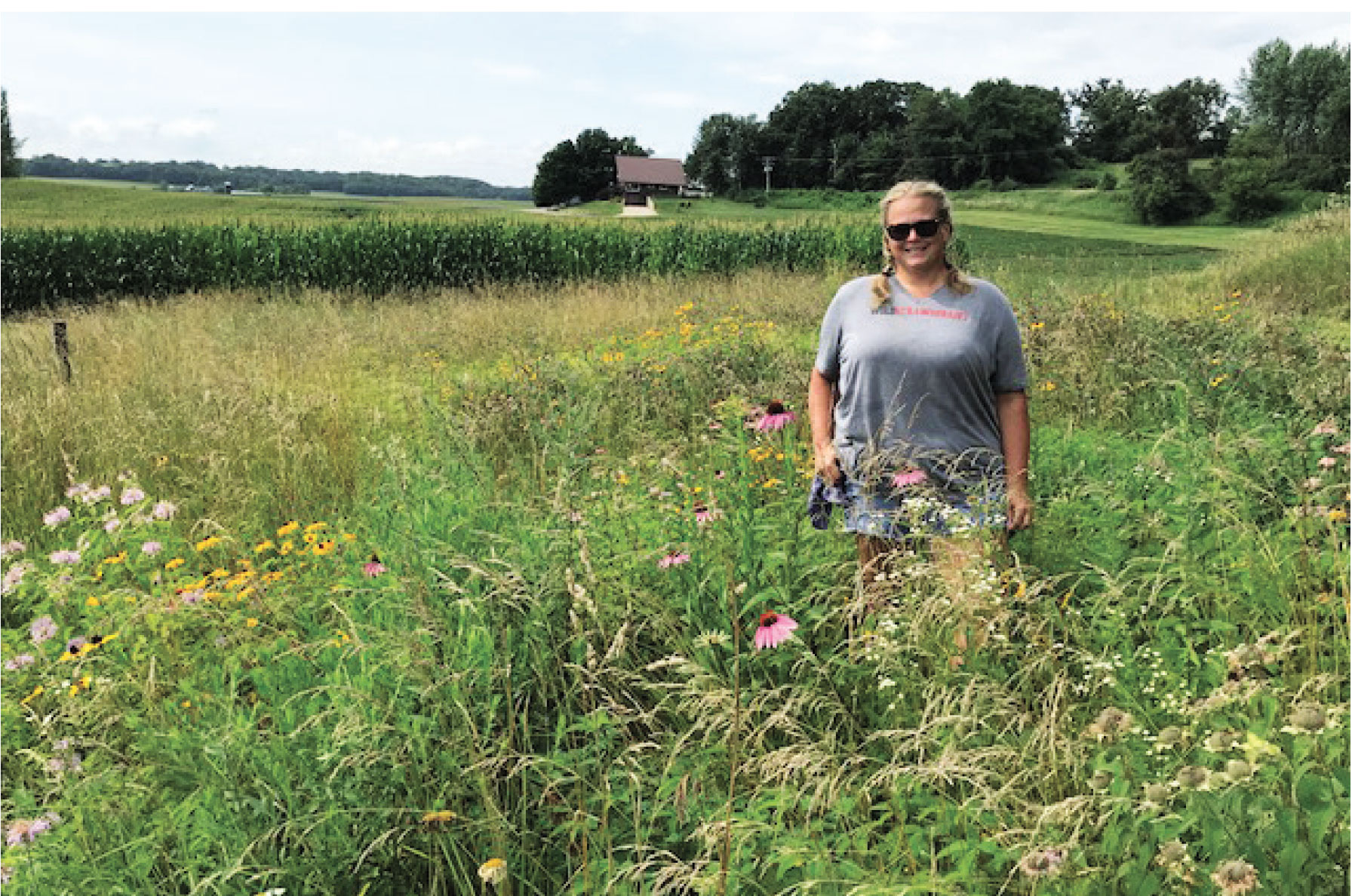At Wold Strawberries, in rural Mabel, they’ve built a reputation for excellent pick-your-own strawberries. As the berry season closed, Suzanne Wold-Burkness recently answered questions about the latest addition to the berry farm. Strangely enough, the latest addition isn’t anything meant for human consumption or sale, but simply wild flowering plants.
Suzanne and her father, Wayne Wold, explained that although strawberries do not need any insects for pollination, raspberries and blueberries (as well as many other plants) do rely on insects to help pollinate the plants. Therefore, about five years ago, Suzanne decided to turn a small patch of unused bare ground at the Wold farm into a “pollinator plot” to provide habitat for these insects. And as this first patch has grown and thrived, she’s planning to do the same on some other patches of land on the property.
Suzanne explained, “I call them beneficial insects… This provides habitat for a lot of bumblebees… we’ll see honeybees in here… a lot of ground-nesting bees. People might be annoyed by them, but they’re actually very beneficial. They pollinate a lot of things that we just don’t see.”
“The main reason to do this was that I had just planted blueberries, and they depend on bumblebees,” Suzanne stated, “So this was just a barren hard pan, always getting eroded away… So it’s holding the soil, and it’s spreading.” Besides many types of bees, she said she’s noticing many crickets, butterflies, a variety of wasps, beetles, syrphids (flies), and many types of ground-nesting birds. Suzanne also shared that although people may think of some insects are simply pests, many are actually indirect pollinators as well.
Suzanne and her husband are entomologists, so they know their bugs. While he works mainly on research projects, Suzanne works on recording data from pest counts, so growers can use that data in making informed decisions about pest control in their area. She favors a system called Integrated Pest Management (IPM).
“IPM has been around since the late 1960s,” Suzanne explained, “It’s a science-based environmentally sensitive approach to managing pests that combines a variety of techniques, including biological control, habitat manipulation, modification of cultural practices, and use of resistant varieties.”
Suzanne explained that while Wold Strawberries is technically not organic, the farm uses many organic practices, and she added that her father (Wayne) has always had strict rules about controlling the use of chemicals. She said, “It’s in his head that he will never put a chemical on a berry. Once the flower comes, he’s done… He just feels it’s safer for everybody.”
In explaining some of the history of the family farm and business, Suzanne said of her father, “He started the strawberry farm in ’73, so it’s been here a long time. He branched off into raspberries, and then he’s allowed us, graciously, to do things like this, the blueberries and the pollinator plot.” Currently, the farm includes about 12 acres of strawberries, nearly two acres of raspberries, and two small patches of blueberries.
Wayne gave a glance even further back into the roots of the farm, stating, “Dad started it in ’59, with one acre. And they kept it around one acre for many years. And my wife and I moved home in ’72, and I got the wild idea and planted a bunch more!” In looking toward the future, Wayne said he hopes the family will keep Wold Strawberries running as a family business, and he added, “I love to plant them and grow them. And I know they’ll find me out in the dirt one day. That’s where I live.”
Although the pollinator plot directly benefits the berry farm, Suzanne likes the fact that it also helps maintain the populations of insects and related wildlife. She said starting a small pollinator plot is something that anyone can do. To start her plot, she simply raked the area, then added some seed mixes that she’d gotten from local businesses. She encourages others to “Just consider planting a few perennial plants, plants that are native to their area… you’ll be surprised.”
Suzanne said some ideal plants for a pollinator plot include bee balm, varieties of milkweed, and any other native flowering plants. She suggested Shooting Star and Seedsavers are two businesses in the area that have excellent seeds for just such a project. She also added that the University of Minnesota website has excellent information for anyone interested in starting a “bee lawn.”


Leave a Reply